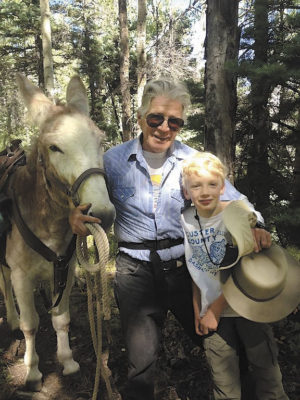By Martha Quillen
Trump’s mean-spirited but wildly popular insults have come as a bit of a shock to America and the world. But it’s hard to imagine a really nice guy becoming president. The idea of a peaceful, benevolent leader seems antithetical to American enterprise. Smiling George W. gleefully pitched us into war, and coolly polite Obama launched deadly drones. Even devout Christians question the possibility of peace and forgiveness. It didn’t work in Afghanistan or Iraq, so forget it.
But peace isn’t all we’ve forsaken. Niceness? Saving women and orphans? Loving your neighbor? Feeding refugees? Letting children escape sexual exploitation by crossing our borders? Some Americans contend that’s too dangerous and costly – and we’ve got to save ourselves.
Of course, Christ once maintained that love and forgiveness were essential. But some people have always been more intent on condemning others than on bettering themselves, and that’s certainly true in our era. A 2015 GOP conference attended by leading American statesmen featured a speaker who advocated the death penalty for homosexuals. A surge of Buddhist nationalism in Burma and Sri Lanka has threatened Muslim minorities. Israelis and Palestinians can’t stop fighting.
Some academics contend that America has a culture of cruelty. An article by philosophy professor John Kozy published by Global Research in January 2013 maintains: “The United States of America was conceived and nurtured by violence. Americans not only engage in violence, they are entertained by it. Killing takes place in America at an average of 87 times each day. Going to war in Afghanistan is less dangerous than living in Chicago.”
America is polarized and partisan. In 2017, your party affiliation says more about you than it used to. It isn’t the platforms and slogans that matter today; it’s the emotions and beliefs of the citizens that drive party politics.
“One of my few regrets is my inability to reduce the polarization and meanness in our politics,” Barack Obama said in 2016.
“We have seen a sharp spike in intolerance and plain old meanness that almost makes me long for the cruel efficiency and tradition of guns drawn at dawn,” Gwen Ifill penned after seeing Hamilton.
[InContentAdTwo] In her book, Strangers in Their Own Land, Arlie Russell Hochschild says when asked whether they’d be disturbed if their child married a member of another political party, five percent of parents in 1960 said yes. But in 2010, 33 percent of Democrats said they would be disturbed and 40 percent of Republicans. In fact, Hochschild contends, “partyism as some call it, now beats race as the source of divisive prejudice.”
And in some cases of partyism, a party isn’t even involved. In our neck of the woods, Salida Citizens for Accountable Government and the Moving Forward citizens display as much partisan ardor as any Tea Party patriots.
Across the country, citizens are on the march and people are so angry it’s hard to calculate what our dissatisfaction is about. Jobs? The economy? Race? Homeland security? Immigration? Education? Crime? Entitlements? Taxes? Government? Voting fraud? Climate change?
Is there anything Americans aren’t worried about?
Some contend our discontent is a result of intentionally incendiary campaigning. Or the Internet. Or our hyper, multi-tasking society. Or today’s increasingly global perspective which makes international problems our problems.
Such a complete storm of things to rage about creates an almost infinite number of enemies to retaliate against: gun owners, tax collectors, bureaucrats, bankers, bigwigs, addicts, the homeless, the marketplace, the academy ….
In recent years, people have taken to characterizing religion as a major cause of political division and mayhem. But there’s a huge problem with assigning blame to big, amorphous institutions and ideologies. Blaming religion is as helpful as blaming mankind, or human existence or the Homo sapiens brain for everything.
And one could just as accurately blame science as religion for modern horrors, by citing its role as an initiator of nasty ideas such as eugenics, bell curve theories and human medical experimentation and sterilization programs. Science also creates the technologies that make chemical pollution, climate change, weapons, fracking, GMOs, oil spills and nuclear accidents possible. But nothing – not religion, science, race, nationality, class or sexual orientation – justifies human cruelty against others.
Besides, it’s counterproductive to try to suppress religions, philosophies and ideologies. They exist in our minds, our nature and our traditions. And attempts to quash religions merely highlight their appeal and power.
Religion isn’t Islam, Christianity, Buddhism, Catholicism, spirituality, superstition, paganism or mysticism …. Religion isn’t worshiping God, or Freya, Neptune, Rama, Devi, Mitra or Sekhet. It is all of those things and more. The grand inquisitors and totalitarian dictators who try to outlaw religions just give the masses a common cause to rally around: a maypole, book, idol, cross, hijab, something that says our minds are ours no matter what you say. Our lives are ours no matter what you impose.
And so … what should we try to suppress?
Our rage. It’s our rage that spreads and grows, and turns people into victims who turn on new people, who retaliate with more rage ….
Obama promised change we could believe in, and Trump nourishes the rage that most of us already harbor. Sadly, rage is much easier to seed, feed and expand than hope. Trump is currently trying to quash Obama’s legacy. But one wonders whether his spin on things – or Obama’s – could really improve anything.
For that, I think, we need more than leaders. For that you and I will have to dip back into that old-time treasure trove of religion and philosophy which encapsulates all the major virtues of man, and pick the most salient. I think I’d pick empathy and compassion and bind them up with the golden rule. But love might be better. Or hope. Or tranquility and harmony.
You don’t have to join a church or political party to embrace those things. You can find them in Disney movies, inspirational tales, sentimental movies, on the Fourth of July, during a march or near the reflecting pool in Washington D.C.
I think the greatest mistake we make in our modern, pseudo-scientific era is that we’ve eclipsed lofty ideals such as liberty, justice and equality with endless wrangling about who gets what when. And nobody is fooled. All of this talk about deficits, cost cuts and regulations clearly translates into whether conservatives or liberals will prevail, and whether corporations or workers will get more. But the finest works of man are not profits, greed or weapons.
So now Americans are hopelessly divided, and we need a more inspirational vision and greater common purpose. So let us, as John Magee suggested, slip the surly bonds of earth and dance the skies on laughter-silvered wings … climb and join the tumbling mirth of sun-split clouds … and do a hundred things you have not dreamed of … wheel and soar and swing … and put out our hands and touch the face of God.
Or more prosaically, as New York Times columnist Tom Friedman reminded us, “… there’s never been a time when we need more people living by the Golden Rule: Do unto others as you would have them do unto you. Because, in today’s world, more people can see into you and do unto you than ever before.”
Martha Quillen blames time constraints for her narrative dysfunction.



